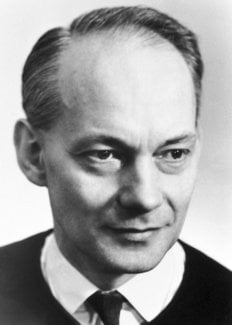
A Nobelist (1967), he was among other things an origin-of-life chemist and in that capacity he authored Eigen’s paradox:
His success made it possible for scientists to study reactions catalysed by enzymes that drive all processes of life. Eigen developed concepts to explain how replicating macromolecules on the prebiotic Earth might have evolved into replicating organisms. In 1971, for example, he posed the paradox that without error-correction enzymes, the length of a nucleic acid would be limited because, in larger molecules, mutations would destroy the information content of subsequent generations. But this maximum size (or error threshold) was too small to encode an error-correcting enzyme. Eigen’s paradox still challenges theoretical biologists. Georgina Ferry, “Manfred Eigen (1927–2019)” at Nature
Here’s an article on Eigen’s paradox:
If we wanted longer, self-sustainable RNA molecules we would need better fidelity. But better fidelity can only be achieved with the help of specialized enzymes. But the smallest genome able to code for such an enzyme, and for the necessary translating machinery, would require a number of bases greatly exceeding 100 nucleotides. It’s a catch-22 situation.
Eigen speculates that the small molecules would have to somehow cooperate (Lo, a coordination problem!) to create a system capable of holding enough information to create more complex stuff… Martin Sustrik, “Coordination Problems in Evolution: Eigen’s Paradox” at LESSWRONG (2018)
Also a paper on the paradox (paywall).
See also: Origin Of Life: Christian Scientific Society Meeting March 10-11 In LA
and
“Super-Ancient Mobile Organisms” Push Mobile Life Back To 2.1 Billion Years Ago
Follow UD News at Twitter!